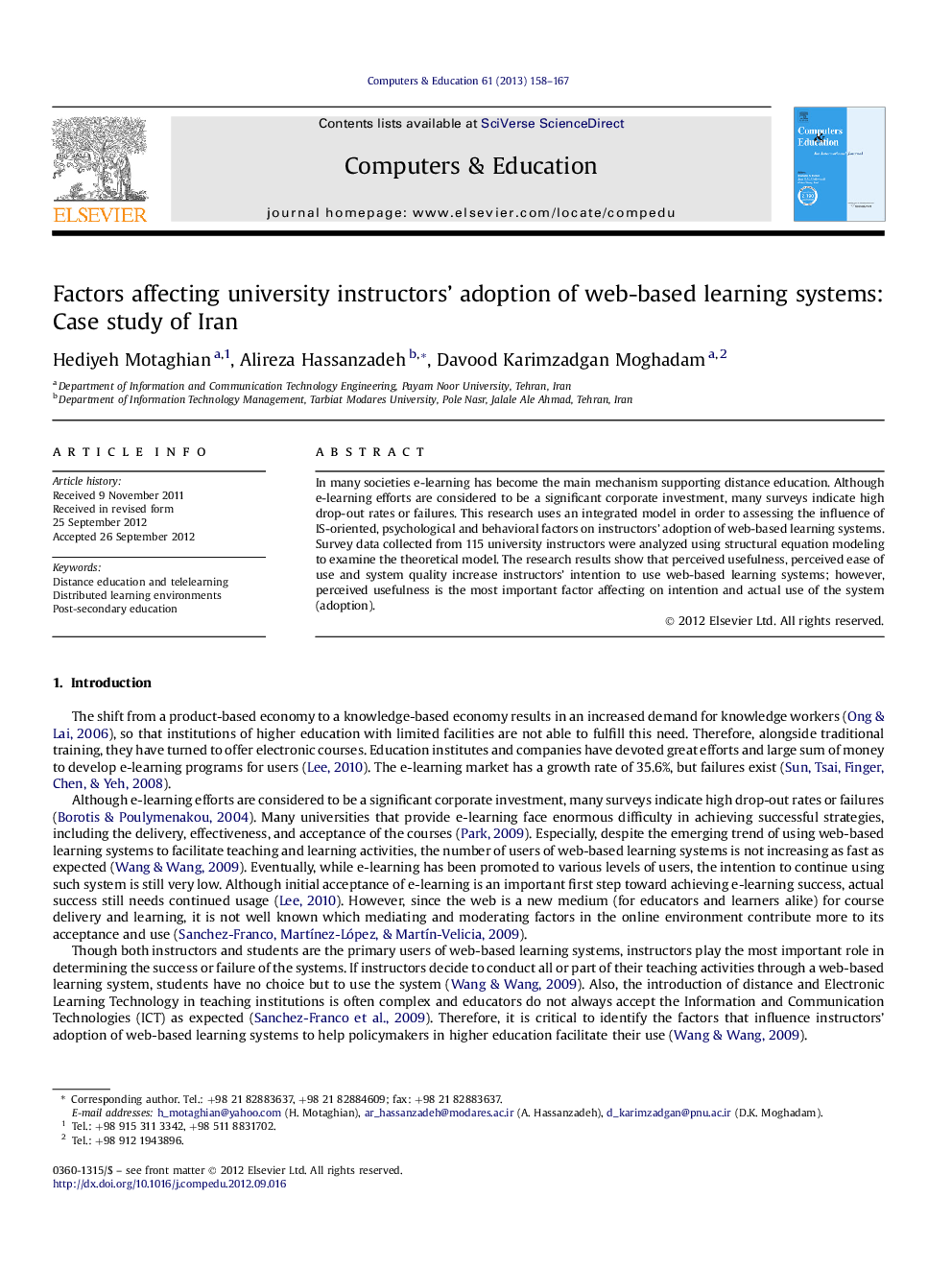| Article ID | Journal | Published Year | Pages | File Type |
|---|---|---|---|---|
| 348532 | Computers & Education | 2013 | 10 Pages |
In many societies e-learning has become the main mechanism supporting distance education. Although e-learning efforts are considered to be a significant corporate investment, many surveys indicate high drop-out rates or failures. This research uses an integrated model in order to assessing the influence of IS-oriented, psychological and behavioral factors on instructors' adoption of web-based learning systems. Survey data collected from 115 university instructors were analyzed using structural equation modeling to examine the theoretical model. The research results show that perceived usefulness, perceived ease of use and system quality increase instructors' intention to use web-based learning systems; however, perceived usefulness is the most important factor affecting on intention and actual use of the system (adoption).
► System quality increase instructors' intention to use web-based learning systems. ► Perceived usefulness increase instructors' intention to use WLSs. ► Perceived ease of use increase instructors' intention to use WLSs. ► Perceived usefulness is the most important factor affecting on intention to use.
